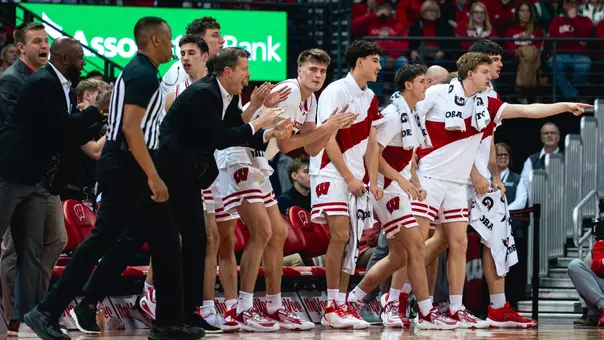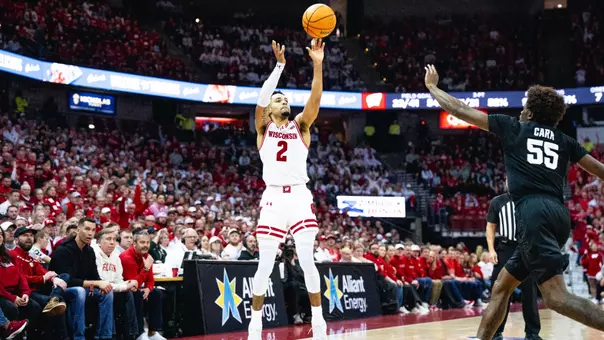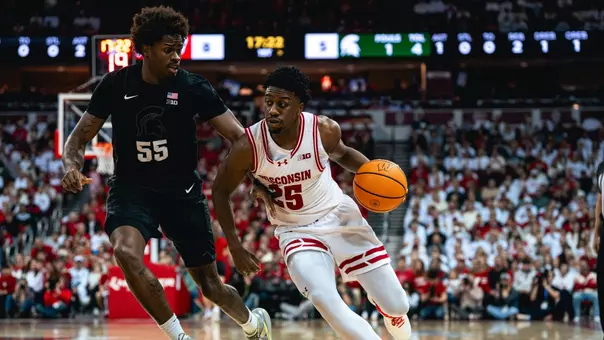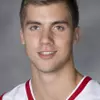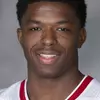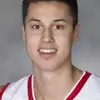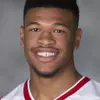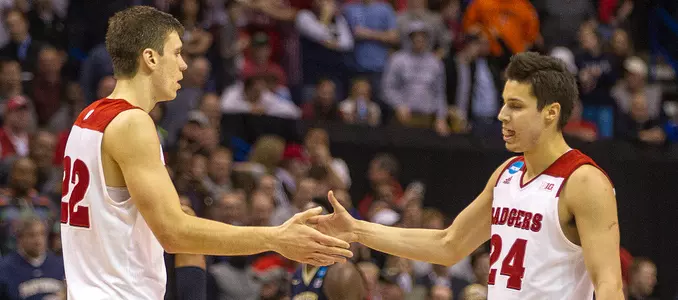
The Little Things: Many 'minor' moments have made difference for UW
March 23, 2016 | Men's Basketball, Mike Lucas
Wisconsin's return to the Sweet 16 powered by an accumulation of accomplishments
Buzzer-beating shots are hard to miss, but it's easy to look past the myriad "minor" moments that have made the difference in the Badgers' return to the Sweet 16 for a third-consecutive season — a list that starts with Wisconsin's renewed emphasis on defense. | From Varsity Magazine

|
||
|
BY MIKE LUCAS
UWBadgers.com Senior Writer
Most basketball players have a love-hate relationship with the "squeaky feet" drills.
It's no different in the Wisconsin locker room.
"No player likes it," suggested redshirt freshman Ethan Happ, who quickly tossed in a qualifier. "I should speak for myself because I've never liked it just because it's conditioning.
"It's a burn in your legs to squeak your feet; slide, slide, slide; squeak your feet, slide, slide, slide. Never liked it. But I've done it with enthusiasm because I know it makes us better as a team."
The squeaking is from the shoes; quick stops and short choppy steps on defensive close-outs.
"It's kind of difficult sometimes because you know what's coming (in practice) whereas during a game sometimes other things take over and you forget to squeak," admitted junior Nigel Hayes. "In the drills, it's easier to do it perfectly than the games, but we have to do our best to emulate it."
The emphasis has been on playing defense as a unit; five players on a string.
"If one guy is not doing something right, it kind of messes up everyone else," offered junior point guard Bronson Koenig. "So we just have to try and help each other out as much as possible.
"I don't really know many players who enjoy them," he opined of the squeaky feet drills. "You're trying to pack the lane and contain the first dribble. But it has helped us a lot and it kind of shows."
In doing the simple math, Hayes reiterated the fundamental con-cept, "Five guys have to be on a string and the better we are on that string, the better the defense is."
Interjected Happ, "We don't win these last two games if we're not five on a string. We've picked it up on defense and that's a big reason why we're in the Sweet 16."
"We don't win these last two games if we're not five on a string," Happ said."We've picked it up on defense and that's a big reason why we're in the Sweet 16."
• • • •
Chop, chop, chop.
The squeaking of basketball shoes on the hardwood is sweet music to the ears of UW head coach Greg Gard, who has been exposing his players to Pack Line drills and principles while conditioning them to the benefits of playing solid defense, particularly when their shooting is inconsistent.
"That's a great sign to see that they're starting to really understand how to play together defensively," Gard said. "We've been able to find a way when we aren't scoring efficiently."
In finding their way since a disappointing start to the season, the Badgers have been taking care of the little things — especially in the NCAA tournament — from Vitto Brown locking up Pitt's Jamel Artis to force a shot-clock violation to Zak Showalter taking a charge on Xavier's Edmond Sumner.
There are many other examples that tend to go unnoticed, according to Happ.
"It's making an extra rotation on defense — it's keeping your guy in front of you," he said. "It's making a hard cut when you know you're not going to get the ball but in making that hard cut it's going to free up another opportunity for someone else."
It's Hayes back-tapping the ball to a teammate to extend an offensive posses-sion.
"Nigel does that a lot," Happ said. "I did that once in the Pitt game. There was no chance of me getting it (the offensive rebound), so I just tried to get it to Bronson. That's big. We don't like to worry about statistics — giving up a rebound or an assist or a bucket to a teammate — if it helps the team win."
Koenig had a career-high seven rebounds against Pitt when his shot wasn't falling (1-of-8).
"Me and Nigel have struggled with our shots the past few games," Koenig acknowledged, "but we've just found ways to facilitate and help other guys step up by either rebounding or defending."
Although everyone is still abuzz over Koenig's shot-making in the Xavier victory — none bigger or more cold-blooded than his buzzer-beater — he also grabbed seven rebounds on Sunday night.
"I'm always the first guy back (on defense) but I've been trying to be a little more hungry on the boards the past couple of games," Koenig said. "Luckily, I've had some bounces that have gone my way. But I've tried to go to the glass a little more.
"It's having a nose for the ball, anticipating where it's going to come off the rim and get-ting to that spot before anyone else."
Xavier had a chance to grab some early momentum with its vaunted transition offense but failed to score on two fast-break opportunities. Hayes blocked Trevon Bluiett's layup attempt, while Koenig harassed and distracted Remy Abell into misfiring at the rim.
Little things. Positive results.
"I was thinking about taking a charge, but I didn't think I could get my feet set quick enough," Koenig said of the sequence with Abell, who was later vic-timized by the game-winning 3. "I was trying to anticipate when he was going to jump and he might have thought I was going to take that charge."
And so he flinched — due in this case to Koenig's hustle to get back and to protect the basket, not score one himself. "It's kind of like what we were talking about before when you don't always have the ball going in for you …" said Koenig, finding a way to contribute on defense.
In this context, he agreed that intangibles are ingredients in the success recipe.
"It's guys who do the hustle plays," he said, "that don't necessarily show up in a box score."
It's Khalil Iverson, Koenig cited, bringing energy and getting the most out of 12 minutes of playing time against Xavier. The UW freshman showed up with a steal and dunk, an as-sist and three blocked shots. In addition, he had a memorable rebound; memorable for its hang time. Air Iverson.
"He went up," said Happ, pausing, "and he was up there for awhile."
Pondered Hayes, "I wonder what it feels like to be up there that high?"
To this end, Hayes has been encouraging Iverson to get more use out of his natural gifts.
"That's something we tell him — that he can have an immediate impact," Hayes said. "He may not be an offensive threat for us at this time but he's definitely able to contribute defensively and with his rebounding. He doesn't know how good of a defender he is yet.
"When he does that for us — which he has of late — it makes us a better team overall with more depth."
"If one thing goes wrong here or there," Hayes said, "maybe we're not tied at the end of the game to where Bronson is able to hit that shot."
On Friday, Charlie Thomas sparked a late first-half run with a basket and rebound against Pitt. On Sunday, Alex Illikainen, who had gone six games without scoring, converted on an as-sist from Hayes. Thomas also made his presence felt in the Xavier win with three rebounds and one memorable foul.
Memorable because the 6-foot-8, 253-pound Thomas flattened guard Myles Davis.
"I don't think he saw him," said Happ, who observed and heard the contact, with Davis hitting the floor. "He (Thomas) was just trying to get over him (the screen). Obviously, we don't want to take that foul. But the guy probably didn't want to set another screen after that."
Jordan Hill, a redshirt sophomore, has been UW's most impactful bench player. He didn't shoot well against Xavier (1-of-5) but he didn't turn it over and had three assists in 21 minutes. Moreover, his only basket — on a hard drive to the rim — came in the defining 17-5 closing run.
"That's what I told him," Happ said. "It might have just been one (basket), but it was a big one. It's a team game and even though you didn't shoot the ball like you hoped, you had that one drive and it was big for us.
"Whenever our bench is going, I feel a lot more confident that we're going to win."
Mired in a shooting slump, Hayes is still confident — and trying to get "going" on offense.
Hayes did capitalize on a deflection, a hustle play, that led to a first half dunk against Xavier.
Little things. Positive results.
"I thought maybe this would get me going and the ball would start going in," he said. "I was trying to get an easy one (basket) and that was one of the easiest shots I've had the last three games.
"In the grand scheme of things, it's one play, it's one basket more that we needed."
In the end, in a game decided by a single basket, the Badgers certainly needed it.
"That's always something that Coach Gard has preached to us as a team — knowing that every possession matters and making sure you put importance and em-phasis on each one.
"It just shows if one thing goes wrong here or there maybe we're not tied at the end of the game to where Bronson is able to hit that shot.
"That's why each time we get another 40 minutes, we have to make sure that we do a better job of executing each posses-sion."
Hayes has yet to make a 3-pointer (0-for-11) in two games.
Last season, he made only 2 of his first 11 shots from beyond the arc in the first three NCAA tournament games before finally getting into a shooting rhythm. He made 7 of his last 13, including 3 of 4 against Duke in the na-tional championship game.
Until he finds his long-distance range, Hayes will continue to utilize his other skills.
"He has really understood how important he is to our defensive scheme," Gard said. "He has become a much better defensive player. He was not dedicated to the defensive end of the floor months ago. But he understands now that he can help us in that way.
"At his size and mobility, I can put him on 3s, I can put him on 2s, I can put him on 4s and 5s."
That would cover small forwards, shooting guards, power forwards and centers.
Sunday, he drew Xavier's lead-ing scorer, Bluiett, and held him to seven points.
"I took pride in knowing that he's their best player," Hayes said, "and in order for us to have a better chance to win, I had to keep him below his scoring average (15.3) and I did.
"That's one of the things I'm actually maddest about from this Big Ten season with those awards — it's that I didn't make the All-Defensive team. It kind of hurt me a little bit.
"The guys like to joke but in my career there have been just two players that I felt got the best of me — Dez Wells from Maryland and Denzel Valentine from Michigan State …"
As he was finishing the sentence, Koenig spoke up from the other side of the room.
"And …
"Shut up Bronson," Hayes playfully replied. "Bronson thinks that he's one of those other guys that I can't guard (when they go one-on-one during warmups before each game). I won't give him that credit. He already has 'The Shot' going for him this week so I'll let him ride that wave."
What a ride it has been, too, since Sunday's epic finish in St. Lou-is.
Monday, Koenig was on a number of national radio shows, including the Dan Patrick Show.
"It's funny, you make a shot," Koenig said with a deadpan expression, "and now every-one wants to talk to you."
"You have to have toughness in every game," said Happ. "You have to have heart. You have to want to win and you have to play for each other. If our offense doesn't show up, if we can't make a shot, we're going to do those certain things."
• • • •
Former Wisconsin coach Dick Bennett is not only the father of Virginia coach Tony Bennett, but he's recognized as the Father of the Pack Line defense, a variation of the man-to-man, whereby the defenders off the ball are plugging gaps and sagging be-hind an imaginary line inside the arc.
If executed, it can be very effective against dribble pene-tration, among other things.
"Coach Gard always talks about the Michigan States and the Vir-ginias and the way they play their defense," Hayes said. "You have one guy guarding the ball and eve-ryone else has a foot in the key trying to prohibit driving lanes. You're allowing jump shots, but they're tough, two-point jump shots."
Squeaky feet close-outs and high hands are integral to its exe-cution.
So are the Pack Line defenders manning help positions.
"It has helped us in terms of controlling the dribble initially," said Gard, who has tailored most of his practice drills to specif-ic team needs. "I think we've gotten in better position one or two passes away. I also think we've closed out better in most instances under control.
"The biggest thing is being one pass away and how far we can squeeze and how much help we can give, along with that ability to stop the ball on that initial thrust, one on one. If you can somewhat steer it east and west and not get beat in a straight line, your help has more time to get there."
Koenig labeled it, "Old-school Wisconsin basket-ball defense."
There have definitely been some twists.
"Coach (Gard) has been stressing digging down in the post more," Koenig said, "to give our post guys a little more help and then being able to fire out and close out on our guy and not let him get a 3-pointer. We're also trying to contain the dribble, absorbing the first dribble."
Gard has turned the practice gym into a lab the last few weeks.
"I've broken down defensive drills more late in the year than ever be-fore," he said. "We were doing close-outs and the shell drill, and we're doing one-on-one driving lines last week before playing Pittsburgh. Things that we used to just do in October and November and then put them away."
Gard will dig them back out for Notre Dame.
"It helped us no doubt Friday," he said of the 47-43 grinder with Pitt. "We were much better on the ball. We didn't get turned and opened up as much on dribble drives. We've become better at recognizing where to help from and where not to help from.
"The biggest thing is they figured out pretty quick that, in order for us to be a good team, we had to be a good defensive team first and the offense will come."
There is one mandate: the physicality can never wane.
"That was my concern with both teams throughout the weekend," Gard confided. "Were we going to be able to match the physicalness of the game? I thought we were just as physical as Pittsburgh. It took us awhile. I don't think we quite matched it in the first half."
But they responded in the second half by outre-bounding Pitt, 21-14.
"I thought in the Xavier game," he said, "we were the more physical team for a large part."
The Badgers won the glass, 38-34; only the fourth time in 34 games this year that the Musketeers had been outrebounded. It all goes back to the winning recipe that Gard has cooked up.
"You have to have toughness in every game," said Happ, speaking to some of the intangibles. "You have to have heart. You have to want to win and you have to play for each other. If our offense doesn't show up, if we can't make a shot, we're going to do those certain things."
Little things. Positive results. Big dividends.
Welcome back to the Sweet 16.

